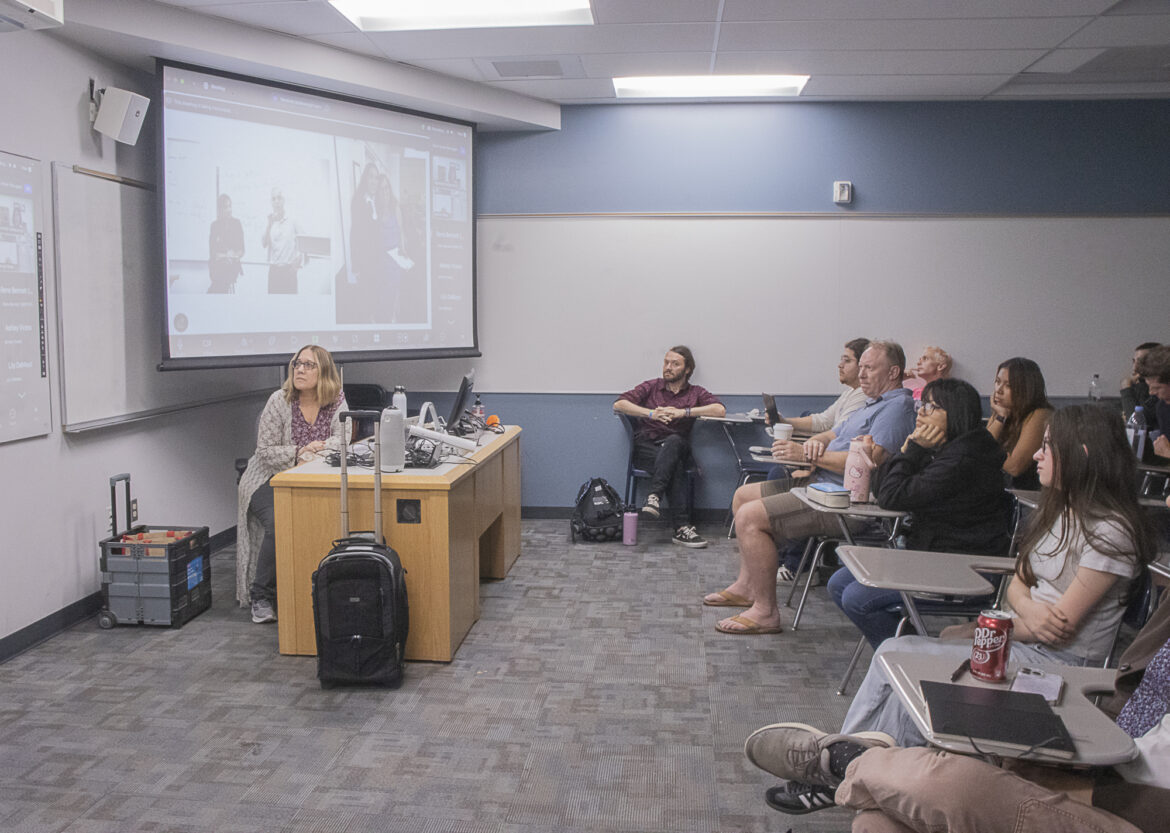With election day looming, some Pierce College professors and students talk politics in class — while others say it’s best to keep political discussions out of the classroom.
Political science professor Denise Robb said she is open to discussions about political opinions in class, but she emphasized that she doesn’t try to persuade students of her views. Instead, she said it’s important to be tolerant of a range of perspectives.
“You can just be neutral, or you can give your political position and make sure they feel open,” Robb said. “The most important thing is that they feel open to share their position without being offensive to people.”
Robb brings in local political party representatives to speak to her classes, for students to gain diverse perspectives.
“That’s why I have the Democratic, Republican, Libertarian and Green Party come and speak to my students, so they can hear from all different points of views,” Robb said.
Kamelia Tashakor, said it’s important to be open to political discussions on campus.
“It’s really important, because a lot of politics are intertwined with our everyday lives, and it’s interesting to hear all different perspectives that could end up opening up someone else’s mind into something that they might not have considered in the past,” Tashakor said.
Economics major Mobowofoluwa Fasheun believes that discussing politics in classrooms depends on the subject of the class and whether it can be incorporated without causing division.
Fasehun said he believes politics in the classroom is a good thing, as long as professors know how to incorporate it in their teaching plan.
“If the teacher isn’t really experienced in talking politics, that could leave some pretty bad taste in the mouth of students,” Fasheun said.
Math professor Mitchell Pumar rarely brings up politics in class, except if the topic of the class discussion is inherently political.
“If I’m teaching about, like today, I was teaching about supply and demand. There’s a little bit of politics that we can discuss there,” Pumar said.
Pumar said it’s important to see if there is the right atmosphere in the classroom to handle political discourse.
“I think people, as soon as politics comes up, get very emotionally charged and invested in their point of view, and you might run the risk of offending,” Pumar said. “You know your students, and you don’t really want to be offensive towards your students.”
Pumar added that no one knows somebody’s political views by looking at them, and he wants students’ opinions valued and welcomed into the classroom.
Robb said she believes the benefits of being open about politics in a classroom are for students to understand how to be engaged in the political system.
“We have a democracy,” Robb said. “And if you’re not engaged in a democracy, it dies. Democracy literally means rule by the people. And if the people are uneducated, apathetic, disinterested, democracy will die.”




